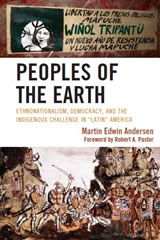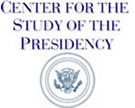In trying to come to grips with Trump, writers have resorted to all sorts of analogies. One popular mode compares him to all sorts of autocrats, ranging from Adolph Hitler to Benito Mussolini to Viktor Orbán to Recep Tayyip Erdoğan. Such analogies are at worst flawed and, at best, premature. While Trump has shown all sorts of authoritarian inclinations, this hasn’t yet manifested in either creating authoritarian mass movements (as the classic fascist dictators did) or thwarting the legal system. Trump might go in such directions, but for now, such analogies are imperfect.
A more plausible analogy is the buffonish former prime minister of Italy, Silvio Berlusconi, who fused lavish corruption, a lurid personal life, and right-wing populism. But Italy isn’t a nuclear superpower and the bedrock of the Western alliance, so Trump has the opportunity to do far more damage than Berlusconi did. Again, the analogy fails.
Comparisons to earlier American presidents, as we’ve seen, don’t quite work either. Nixon was as emotionally wounded as Trump, another bundle of paranoia and resentment. But Nixon had a far greater grasp of policy. Reagan shared some of Trump’s celebrity appeal, airiness, and disengagement from reality, but the Gipper at least had political experience as governor of California.
Writing in N+1, the political theorist Corey Robin makes an intriguing comparisonbetween Trump and Jimmy Carter:
The parallels between Carter and Trump are also many, if less obvious. Like Carter, Trump ran hard against his party, decrying its most basic orthodoxies on trade, immigration, and entitlements. Throughout the campaign, Trump proudly and repeatedly declared his refusal to cut Social Security and Medicare. Like no other Republican in modern memory, Trump railed against the plutocratic union of money and state power.
Carter declared, “My positions are not predictable.” Trump, too, has occupied an ambiguous ideological space of ever-changing policies and commitments. And like Carter—who anointed himself the sole vehicle of reform, cultivating, in his words, “the lonely, independent candidate image depending on the voter only”—Trump has declared himself the single, solitary voice of renovation: “I alone can fix it,” as he said at the Republican National Convention.
Yet, Robin himself admits a crucial difference: “Carter was a state senator and a governor; Trump has no political experience.” This political experience makes all the difference in the world. Carter, like all other presidents before Trump, wasn’t entering the White House as a complete novice. (Democrats would be thrilled if the Carter comparison proved prescient, as he was an inconsequential one-term president.)
Trump promised change, and he truly is different in crucial ways from any other president. No one knows what to expect from Trump; he may not even know himself. For Trump supporters, that uncertainty is a big part of his appeal. Many of them feel that the existing order is corrupt and rigged, that it needs to be shaken up by an unpredictable president. For Trump’s political opponents, that same volatility is frightening, since it could lead to a chaos not easily controlled.
It may well be that Trump’s most pervasive impact will be in destroying any sense of stability. Despite the fact that Americans and the West have had to deal with all sorts of traumas in recent decades, ranging from terrorism to open-ended wars to economic collapse, the political and social system has been remarkably stable, with major institutions, including the two political parties, weathering the storm. Trump’s victory demonstrates that the political and social system was more fragile than we had assumed.
The last time the world had to deal with such uncertainty was during the peak of the Cold War in the 1950s and 1960s, when a new nuclear stalemate had many fearing armageddon. Not coincidently, the philosophy of existentialism, with its injunction to accept the absurdity of life, achieved mass popularity during those years. Under Trump, we could see a renewed awareness of the radical contingency of being, of the pervasive fragility of existence, that gives birth to a fresh stoic philosophy: An existentialism for the 21st century. This presidency may force Americans to face the ultimate questions.




